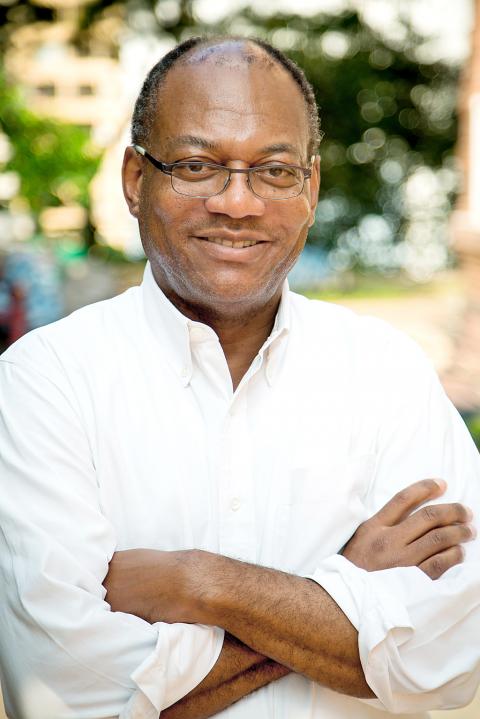Keith Richburg, director of the Journalism and Media Studies Center at the University of Hong Kong, and former Africa Bureau Chief for the Washington Post, will give a lecture, “Dragon Among the Lions: What Does China Really Want From Africa?” in Taipei on Sept. 9. The lecture will be moderated by Lung Yingtai (龍應台), writer and former Taiwan Minister of Culture. China has surpassed the US as Africa’s largest trading partner, investing some US$7 billion each year in infrastructure projects around the continent. Is China really looking for a long-term relationship of “equality and mutual respect,” or does it want to be merely a “friend with benefits,” like so many of the Western colonial powers that came before? How much do ordinary Africans really benefit from China’s economic largesse? Richburg will discuss his perspective on China-Africa relations, their economic partnership and the geopolitical implications of the country and continent drawing ever closer.
■ Taiwan Academy of Banking and Finance (台灣金融研訓院), 2F, 62 Roosevelt Rd Sec 3, Taipei City (台北市羅斯福路三段62號2樓)
■ Sunday from 2pm to 3:30pm; free admission, but those wanting to attend must pre-register at www.civictaipei.org/registration.php (English and Chinese). For more information, call Yuan Ti at (02) 3322-4907, Ext. 14. The lecture will be held in English.

Photo courtesy of Lung Yingtai Cultural Foundation

That US assistance was a model for Taiwan’s spectacular development success was early recognized by policymakers and analysts. In a report to the US Congress for the fiscal year 1962, former President John F. Kennedy noted Taiwan’s “rapid economic growth,” was “producing a substantial net gain in living.” Kennedy had a stake in Taiwan’s achievements and the US’ official development assistance (ODA) in general: In September 1961, his entreaty to make the 1960s a “decade of development,” and an accompanying proposal for dedicated legislation to this end, had been formalized by congressional passage of the Foreign Assistance Act. Two

Despite the intense sunshine, we were hardly breaking a sweat as we cruised along the flat, dedicated bike lane, well protected from the heat by a canopy of trees. The electric assist on the bikes likely made a difference, too. Far removed from the bustle and noise of the Taichung traffic, we admired the serene rural scenery, making our way over rivers, alongside rice paddies and through pear orchards. Our route for the day covered two bike paths that connect in Fengyuan District (豐原) and are best done together. The Hou-Feng Bike Path (后豐鐵馬道) runs southward from Houli District (后里) while the

March 31 to April 6 On May 13, 1950, National Taiwan University Hospital otolaryngologist Su You-peng (蘇友鵬) was summoned to the director’s office. He thought someone had complained about him practicing the violin at night, but when he entered the room, he knew something was terribly wrong. He saw several burly men who appeared to be government secret agents, and three other resident doctors: internist Hsu Chiang (許強), dermatologist Hu Pao-chen (胡寶珍) and ophthalmologist Hu Hsin-lin (胡鑫麟). They were handcuffed, herded onto two jeeps and taken to the Secrecy Bureau (保密局) for questioning. Su was still in his doctor’s robes at

Mirror mirror on the wall, what’s the fairest Disney live-action remake of them all? Wait, mirror. Hold on a second. Maybe choosing from the likes of Alice in Wonderland (2010), Mulan (2020) and The Lion King (2019) isn’t such a good idea. Mirror, on second thought, what’s on Netflix? Even the most devoted fans would have to acknowledge that these have not been the most illustrious illustrations of Disney magic. At their best (Pete’s Dragon? Cinderella?) they breathe life into old classics that could use a little updating. At their worst, well, blue Will Smith. Given the rapacious rate of remakes in modern